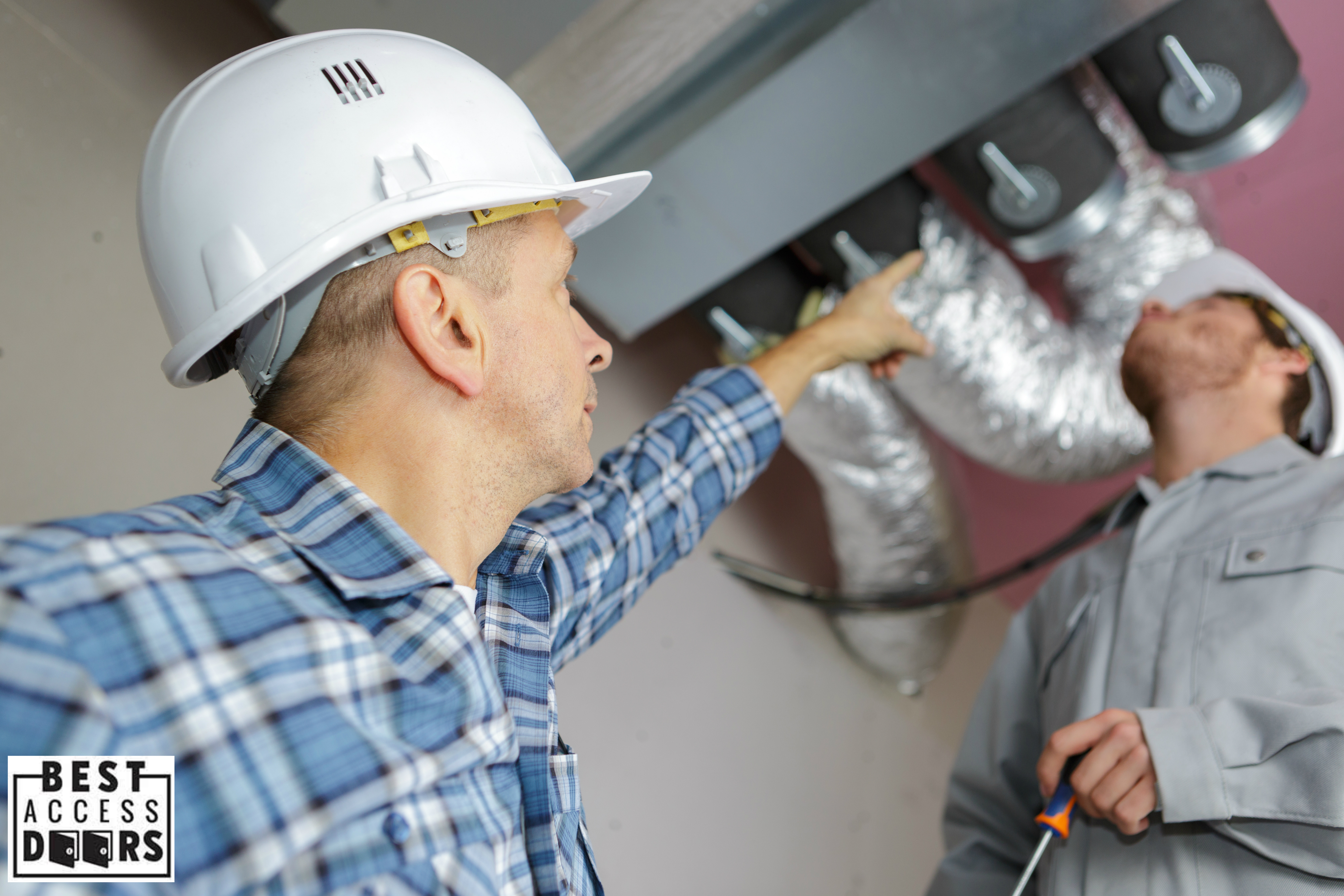HVAC 101 – What to Look for When in The Market for One
Posted by Best Access Doors on 25th Apr 2018
When it comes to HVAC units – whether you are a contractor of an industrial or residential property there are a few things to keep in mind. While we may like to think that it is as easy as picking the cheapest or most reasonable model, there are many factors such as the size, ratings and warranty that can actually dictate the way one chooses to buy an HVAC unit.
We look at five things to consider when looking to purchase and install an HVAC unit, such as the BA-PA-3000 Flush Plastic Access Panel, in your industrial, commercial, or residential property.
Size
As a contractor and builder, they do not jump to purchase something because it’s the cheapest or the biggest. Size does not necessarily mean it’s the best product or service out there. Knowing what your space, whether it is commercial, residential or industrial will help in dictating the ideal and suitable HVAC unit for purchase.
Brand
Whether it is an HVAC unit or a panel one is purchasing, the brand of a certain product can dictate the quality and price of an object. With HVAC units, there are certain brands that are slightly more reputable if not known for quality, while other brands are for the most part of sub-par and are a better choice for functionality if anything. When choosing an HVAC unit – the brand can sometimes dictate whether or not it is worth investing hundreds if not thousands of dollars on a unit. Some brand names include Carrier, Trane, Lennox, Maytag and Westinghouse. So, the next time you are on the search for an HVAC unit, don’t just rely on brand alone to make your decision alone – but consider other factors such as that of price range and size to name a few.
Price Range
When it comes to prices of HVAC units there are three-categories to consider:
- Low efficiency (entry level) $1,500 to $3,000
- Middle efficiency (average) $2,000 to $4,000
- High efficiency (top-grade) $5,000 to $9,000
For some not prepared to spend the money or for some who are not sure what to look for – spending anywhere between $1,500 to $3,000 is a fairly reasonable price to pay; however, when someone is looking to spend upwards to nearly $9,000 on a unit, it is important to consider all factors to ensure that no money is being invested and not wasted. Wasted not in the literal sense but rather, wasted in that sometimes the more expensive objects aren’t always the best objects or necessary.
Warranty
Purchasing a large and expensive object – whether it is a car, fridge, BBQ or HVAC unit, it is important to see what kind of warranty is offered. Some warranties are only for a year and that is all, while some warranties are not only lengthy but cover different aspects of the purchase. For an HVAC unit, for example, some warranties can cover repairs for up to a certain time and then afterwards if there are any issues the parts must be ordered via the company or elsewhere. When purchasing something like an HVAC unit, knowing the length of the warranty as well as what is covered can provide some peace of mind in knowing that should any issues happen, they could be covered under a warranty – whether that is the brand of the unit itself of the seller.
Purpose
An HVAC or heating, ventilation and air conditioning unit serves specific and meaningful purposes. Whether you are looking to improve or moderate heating to regulating the cooling of a space, the installation of an HVAC unit means knowing that there is a need and purpose for the actual machine itself. For example, HVAC units that are in the market today combine all three, heating, ventilating and air conditioning; however, prior to the advancements in technology – every system required their own specific unit. For some, an HVAC system and unit are combined with the natural and organic methods of moderating and regulating temperature and ventilation. Regardless of the required unit – having a purpose of what is required can assist with the process of knowing what kind of unit one requires and what they hope to accomplish with said unit.
As a consultant, commercial builder, or residential professional, having a comprehensive understanding of the requirements and factors associated with HVAC units can greatly simplify the process of purchasing one. While price and brand are important considerations, it is essential to delve deeper and consider additional factors to ensure optimal performance and avoid future complications.
By expanding your evaluation beyond mere price and brand, you can make informed decisions that will enhance the efficiency and longevity of your HVAC system. Taking into account factors such as energy efficiency, size and capacity, maintenance requirements, and compatibility with your specific application will help you choose a unit that meets your unique needs.
For further valuable insights on construction and industrial topics, we invite you to explore our blog. We regularly publish informative posts that can assist you in making informed decisions and staying updated on industry trends.
Visit our blog for more helpful construction and industrial content.
Share our story - the 2025 version is available

